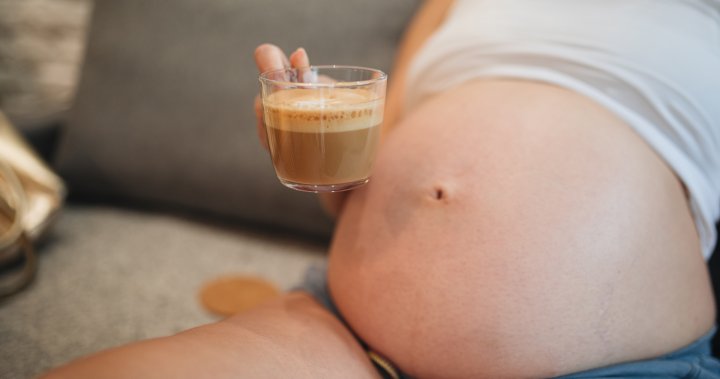
Pregnancy and coffee: A cup of joe may not be as risky as you think
Global News
Drinking coffee during pregnancy may not be as risky as once thought, according to a study that found no strong link between caffeine and neurodevelopmental problems in children.
Drinking coffee during pregnancy may not be as risky as once thought, according to a recent study that found no strong link between caffeine consumption and neurodevelopmental problems in children.
Despite these reassuring findings, the researchers still recommend that pregnant people stick to medical advice on caffeine limits.
The observational study, published Oct. 9 in Psychological Medicine, suggested that drinking a moderate amount of coffee during pregnancy is unlikely to have a significant effect on a child’s brain development.
“Our analysis found no link between coffee consumption during pregnancy and children’s neurodevelopmental difficulties,” said co-author Gunn-Helen Moen, from the University of Queensland’s Institute for Molecular Bioscience.
“Overall, our study supports current clinical guidelines that state low to moderate consumption of coffee during pregnancy is safe for the mother and developing baby,” Moen said in an accompanying commentary article on Oct. 14.
These findings echo the advice from the Public Health Agency of Canada (PHAC), which states drinking caffeine while pregnant is safe in small amounts.
The current PHAC guidelines recommend keeping caffeine intake below 300 milligrams a day, which amounts to around two cups of coffee. This includes coffee, tea (including black, oolong, white and green tea), caffeinated soft drinks (cola beverages) and energy drinks, chocolate and herbs such as guarana and yerba mate.
HealthLinkBC also states that small amounts of caffeine are safe for the fetus. It’s recommended to keep caffeine intake below 300 mg per day, as higher levels of caffeine may be associated with an increased risk of miscarriage, it stated.











